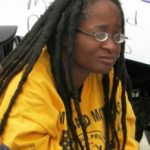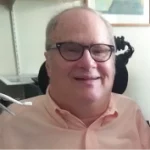About the Topic
What are the implications of granting the right to use suicide as healthcare to people with psychiatric diagnoses, ineffective healthcare, perceived disabilities, and undiagnosed medical problems? How does the conversation change when death becomes an approved outcome of healthcare?
About the Speakers


As the director of Second Thoughts MA: Disability Rights Advocates Against Assisted Suicide, John has again and again helped stop the legalization of assisted suicide in Massachusetts. In 2012, he squared off thrice against assisted suicide proponent Dr. Marcia Angell, and more recently his work has been featured in outlets such as as the Boston Globe, Worcester Telegram, CNN’s “United Shades Of America,” WSHU-AM in CT, and elsewhere. John has a Masters degree in Sociology from Brandeis.
About Judi’s Room
Named after celebrated human rights activist Judi Chamberlin, Judi’s Room is a free public discussion panel hosted jointly via Zoom by MindFreedom International and I Love You, Lead On on the first Wednesday of each month. These meetings usually begin with a presentation by a panel of experts followed by a group discussion in which questions from the audience are welcome. Closed captioning and ASL interpretation is provided. Registration is required.


